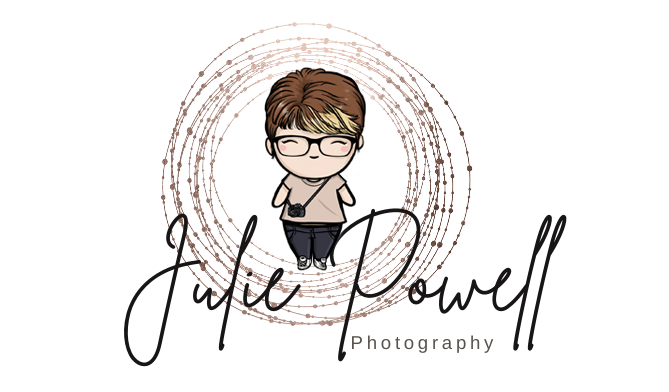Getting the most out of a photography conference
Photography conferences are a fantastic opportunity for photographers of all levels to improve their skills, network with like-minded individuals, and gain inspiration from renowned professionals. These events bring together photographers from diverse backgrounds and styles, creating a melting pot of creativity and knowledge. To ensure that you make the most of your time at a photography conference, it’s important to be well-prepared and have a clear plan. I’ve just come back from my second-ever photography conference. I learnt a lot from the first one and even more from my second. Here are a few strategies that may help you get the most out of your next photography conference experience.
Unicorn Warrior with Louise Sedgeman and Tia
Set clear goals
Before attending a photography conference, it’s essential to establish clear goals. What do you hope to achieve during the event? Are you looking to improve your technical skills, build your network, or gain insight into a specific genre of photography? Having well-defined objectives will help you focus your efforts during the conference and make the most of your time there. While not always possible, sometimes having an open mind can be an advantage. Or perhaps, you’re just there to have fun and enjoy yourself. That can be a goal too.
Research the speakers and schedule
One of the key benefits of photography conferences is the opportunity to learn from industry experts and accomplished photographers. Research the list of speakers and their topics in advance, if possible. Identify the sessions that align with your goals and interests, and create a schedule to ensure you don’t miss out on any valuable presentations or workshops. However, if you have a jam-packed workshop schedule, this is not always possible. But try to fit in one or two if you can.
Bring the right gear
Photography conferences often provide hands-on workshops and opportunities to shoot in unique locations. To make the most of these experiences, bring the necessary gear. Ensure you have your camera, lenses, tripod, spare batteries, memory cards and any other essential accessories. Don’t forget a notepad or tablet to take notes during sessions. Ask beforehand (if possible) on gear suggestions for the various workshops.
Network effectively
Networking is a significant aspect of photography conferences. Take advantage of the opportunity to connect with fellow photographers, speakers, and vendors. Attend social events, such as cocktail hours and networking lunches, to engage in meaningful conversations and exchange ideas. Remember to bring business cards and be prepared to follow up with your new contacts after the conference.
Ask questions and engage
During sessions and workshops, don’t be afraid to ask questions and engage with the speakers. Photography conferences provide a platform for direct interaction with experts in the field. Take advantage of this by seeking clarification, sharing your thoughts and participating in discussions. Your active engagement will enhance your learning experience.
Be organized
One of the biggest things I found was to make sure you stay organized. Write up a spreadsheet beforehand, of what events, workshops, and talks you are going to. Keep notes of who is the lecturer or instructor, the locations, the time (factor in travel time), what gear you will need and how you will get to and from each event. Leaving time between events for travel, breaks and such. Make sure all batteries are fully charged (and bring a charger with you) and all SD Cards are empty and formatted beforehand.
Attend hands-on workshops
Participating in hands-on workshops can be a great way to learn new techniques and improve your skills. These sessions often cover topics like lighting, post-processing, and composition. Look for workshops that align with your interests and be ready to get your hands dirty. Alternatively, look for workshops that take you out of your comfort zone and can stretch your creativity.
Try something completely different
Visit the vendor booths
Photography conferences typically feature a variety of vendor booths where you can explore the latest photography equipment, software and services. Take the time to visit these booths, ask questions and test out new gear. You might discover tools or resources that can enhance your photography work. This can also come under the heading of networking. You never know what connections you might make.
Stay inspired
Photography conferences can be overwhelming with so much to see and learn. It’s essential to stay inspired and motivated throughout the event. Surround yourself with the work of other photographers, attend creative sessions, and explore the location where the conference is being held to find new sources of inspiration. While it is possible that some of the workshops you attend are not what you expected, keep an open mind. Something may not be your ideal photography choice, but there is usually some tidbit of information or technique to obtain from each of them.
Enjoy the activities
Review and reflect
After the conference, take some time to review your notes, the connections you made, and the knowledge you gained. Reflect on how the conference has contributed to your photography journey. Consider how you can apply what you’ve learned to your work and your goals.
Finally, photography conferences are invaluable opportunities for photographers to grow, learn, and connect with their peers. There’s a lot you can do to get the most out of these events. Set clear goals. Research the schedule. Network effectively. Ask questions and engage in workshops. Visit vendor booths. And if course, stay inspired. Remember to follow up with the contacts you make and apply the knowledge you gain to your photography endeavors. By approaching photography conferences with a well-planned strategy, you will be more organized, less stressed and more likely to get the most out of the events.









